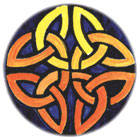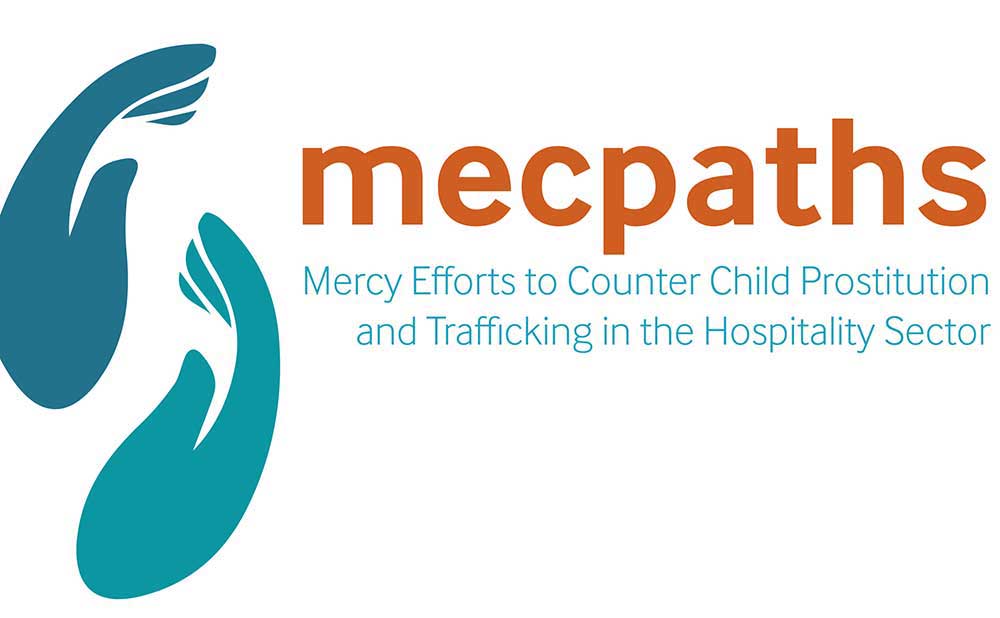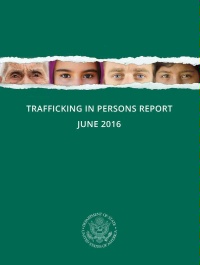|
Working to overcome human trafficking today is a relatively new form of ministry for many sisters in the Irish Congregation, yet it is a ministry that would have been very dear to the heart of Catherine Mc Auley, our foundress.
 The Congregation of the Sisters of Mercy Ireland has seven provinces, four in Ireland, plus the South Africa , Kenya and the Irish US province, with its provincial office in California. During the past few years there has been a growing awareness of human trafficking among the Sisters, their co-workers and their associates. They, and the NGOs with which they are linked, had great hopes that the new Anti-Trafficking Bill, the Sexual Offences Bill 2014, which penalises ‘demand’, would come into law before the devolution of the previous Irish Government in Feburary 2016. There was much disappointment that it did not happen. Hopefully the new government will move forward this Bill without further delay. The Congregation of the Sisters of Mercy Ireland has seven provinces, four in Ireland, plus the South Africa , Kenya and the Irish US province, with its provincial office in California. During the past few years there has been a growing awareness of human trafficking among the Sisters, their co-workers and their associates. They, and the NGOs with which they are linked, had great hopes that the new Anti-Trafficking Bill, the Sexual Offences Bill 2014, which penalises ‘demand’, would come into law before the devolution of the previous Irish Government in Feburary 2016. There was much disappointment that it did not happen. Hopefully the new government will move forward this Bill without further delay.
MECPATHS
 The needs of those caught in human trafficking touch the hearts of many Sisters, leading to a number of them becoming actively involved in opposing human trafficking. Mercy Congregation Ireland has established MECPATH --Mercy Efforts to Counter Child Prostitution and Trafficking in the Hospitality Sector - influenced by the work initiated by ECPAT- the campaign to End Child Pornography, Prostitution and Trafficking, pioneered by Mercy Investment Services in the U.S. and offered initial supporting to the Irish Sisters and co-workers involved in the project, with Mary Ryan rsm, South Central Province, as coordinator and Ruth Kilcullen project manager. MECPATHS campaign is to raise awareness among hotel staff of the reality of child sexual exploitation and the possability of their premises being used and to support hotels in its prevention. The needs of those caught in human trafficking touch the hearts of many Sisters, leading to a number of them becoming actively involved in opposing human trafficking. Mercy Congregation Ireland has established MECPATH --Mercy Efforts to Counter Child Prostitution and Trafficking in the Hospitality Sector - influenced by the work initiated by ECPAT- the campaign to End Child Pornography, Prostitution and Trafficking, pioneered by Mercy Investment Services in the U.S. and offered initial supporting to the Irish Sisters and co-workers involved in the project, with Mary Ryan rsm, South Central Province, as coordinator and Ruth Kilcullen project manager. MECPATHS campaign is to raise awareness among hotel staff of the reality of child sexual exploitation and the possability of their premises being used and to support hotels in its prevention.
The group has undertaken training so is available to offer training to hotels’ staff in Ireland, working closely with hotels’ management throughout their Mercy provinces. They use the Training Modules, developed by MECPATHS team with managers and human resource personnel and encourage its use in induction courses for new staff members. Hoteliers are encouraged to sign and publicly display in their hotels the ‘Code of Conduct for Travel and Tourism’, and the ‘Protocol of Best Practice’ agreed with the Irish Hotel Federation (IHF). To date the group has engaged with approximately 160 hotels and give presentations to new hotels on a regular basis.
Recently new volunteers have joined MECPATHS and a review of promotional material has taken place. At their February 2016 meeting Kerry Stop Trafficking Group joined the campaign. Contact was also made with a similar campaign in Sweden ‘Real Stars’, and information and experiences were shared . A forth-coming meeting with the ‘Real Stars’ director is arranged for later in 2016.
In May 2016 a training day for the Mecpaths team was held in Mercy International Centre Dublin and was also attended by representatives of many NGO and organisations working on the issue of human trafficking. The purpose of the day was to examine ways to combat the sexual exploitation of children. It was hosted by MECPATHS and was facilitated by Debbie Beadle from ECPAT UK and focused on child sex trafficking in Ireland including the complex nature of the crime and the challenges this presents.
The project manager, Ruth, took part in a Youth Symposium on Human Trafficking at the Vatican in November 2014, where she presented a paper on the work of the MECPATHS campaign to a gathering of young people from various sectors of the anti-trafficking movement from across the world and of different faiths and backgrounds. As one young person put it: ‘We don’t want just to be the hope for the future, we want to be the change today’ ....
APT and RENATE
 Sisters Mary Ryan and Sheila O’Gorman, Southern Province, were among the founding members of APT - Act to Prevent Trafficking -in Ireland . It is a faith-based organisation of women and men religious. Members of APT were involved in establishing RENATE – Religious in Europe against Trafficking and Exploitation Sisters Mary Ryan and Sheila O’Gorman, Southern Province, were among the founding members of APT - Act to Prevent Trafficking -in Ireland . It is a faith-based organisation of women and men religious. Members of APT were involved in establishing RENATE – Religious in Europe against Trafficking and Exploitation
Through networking with Ruhama - Dublin based NGO working on a national level with women affected by prostitution and other forms of commercial sexual exploitation, members of the Mercy family, worked with and assisted women in street prostitution or became a ‘befriender’ to those who are trafficked. Some religious communities including Mercy are involved in providing ‘safe house accommodation’ and short respite for women who have been rescued from traffickers or are in a dangerous situation.
The plight of women and children tricked, cheated and coerced into this modern form of slavery is literally beyond belief. Every effort is needed to raise awareness of this crime. Links are made with many local women’s groups. Through Sisters involvement with APT training programmes have begun with diocesan representatives, who in turn will bring this to their parish pastoral councils. Some local county councils have become involved in arranging informative sessions in their localities.
Second level schools throughout the island of Ireland are also involved in awareness raising. Drama students from five second level colleges in Enniskillen took part in an awareness raising afternoon from APT and went on to developed and produced their own drama on the dangers of human trafficking. The Mercy school in Mallow Co Cork won the Young Entrepreneurs’ Award for their human trafficking project...
Provinces Outside Ireland
Two of the Congregation’s provinces outside Ireland are in Africa: Kenya and South Africa. Tragically, just like the time when the Slave Trade was at its peak, Africans are still being bought and sold today. The majority of these latter day slaves are women and children. Poverty and conflict are the principal root causes or push factors and the false offer of well paid jobs is what pulls people into deceptive and dangerous situations.
Kenya Province
2015 Increased Public Awareness on Human Trafficking in Nairobi
– Sisters concentrated their efforts on Mercy founded schools mainly in the Mukuru slums and in the Eastern part of the city, where many people are poor, vulnerable and and easy targets for human traffickers. Through involving seven primary schools and five secondary schools they raised awareness with students of the dangers of human trafficking. Parents, teachers and management committees were also informed of the dangers and of Child Protection and Safety requirements. It is planed is to form Justice and Peace clubs in schools where participants become ambassadors for safety among their peers, in their homes and communities.
Working with youth in one parish, enables the young people to raise awareness of human trafficking among their colleagues, friends and households. The trafficking experience of survivors and returnees from Saudi Arabia is often used to highlight the dangers of trafficking. Plans are being implemented to work more collaboratively with an MMM Sister who works in and around Nairobi and with HAART – Awareness Against Human Trafficking Kenya, an NGO that targets youth in the fight against human trafficking.
South African Province
‘Mercy House’ Pretoria, is a shelter, opened for victims of domestic violence but now used for victims of human trafficking. Sr.Colleen Wilkinson rsm manages the centre. Initially the International Organisation for Migration (IOM) approached Mercy House, resulting in victims of human trafficking being accommodated there and training of staff being provided by IOM and the Department of Social Development (DSD). By July 2014, Mercy Centre had accommodated 300 female victims, 92% from Thailand, the Philippines and Eastern Asia, and the rest were from African countries including South Africa. Most of these trafficked women were caught up in prostitution. Others were kept in hair salons, in homes as domestic slaves and in cleaning companies.
Often trafficked victims arrive having escaped from a hotel in Johannesburg. This hotel is run by traffickers, and known to the authorities. Raids have been carried out but the traffickers have always received a tip off and the women are brought to other hotels for the night. In addition to offering shelter Mercy House runs restorative programmes to facilitate physical and psychological healing, plus skills development training for victims, as part of their outreach programme. Staff members also offer awareness raising workshops on human trafficking for schools, churches, youth groups, social workers and networks with staff members in other shelters.
Mercy House participated in the first UN World Day against Trafficking in Persons on 30 July 2014 through the initiative of a student social worker who became convinced that ‘It was time to speak out about Human Trafficking’. With the support of Mercy House management and her supervisor she helped plan, arrenge speakers and bring to fruition a very successful Awareness Raising Campaign through the streets of Pretoria. A great example of The Power of One!
Irish- US Province
Now stationed in San Diego, Mary O’Connor rsm lived in the Midwest for 24 years, where she became aware of the need for anti-trafficking work. She was a weekly presence in a trafficked women’s shelter in Sioux Falls, where she also ran writing sessions for a group of victimized women. Then, in the twin cities of Minneapolis/St Paul, a known hub for trafficking, she was a member of a St. Paul committee for Action Against Human Trafficking from which members worked at raising awareness about human trafficking: for example, getting information to hoteliers about the use of their premises particularly for child sex trafficking and asking that they train their staffs; talking with teachers to give them information they might integrate into their curriculum and putting them in contact with local anti-trafficking agencies, such as Breaking Free / and The Family Partnership ; giving presentations to high-shool students; promoting the creation of a ‘Stop Trafficking’ postage stamp to help raise national awareness. In her long and comprehensive research essay on South Dakota refugee and immigrant women, ‘Resilience and Survival’, (published 2015), she delved into the way immigrants and refugees are targeted for labor and sex trafficking. She participated faithfully in the meetings of the MHTTF, the Minnesota Human Trafficking Task Force, to keep updated and aware of what was going on, and the struggles of various agencies working for those victimized.
 Trafficking in Persons (TIP) Report 2016 Trafficking in Persons (TIP) Report 2016
The Trafficking in Persons Report, or TIP Report, is an annual report issued by the U.S. State Department's Office to Monitor and Combat Trafficking in Persons. It ranks governments based on US research of their efforts to acknowledge and combat human trafficking.
In the TIP Report, the Department of State places each country onto one of three tiers based on the extent of their governments’ efforts to comply with the “minimum standards for the elimination of trafficking” found in Section 108 of the TVPA.
View the TIP Report 2016 for Ireland (Tier 1)
|

 The Congregation of the Sisters of Mercy Ireland
The Congregation of the Sisters of Mercy Ireland The needs of those caught in human trafficking touch the hearts of many Sisters, leading to a number of them becoming actively involved in opposing human trafficking. Mercy Congregation Ireland has established MECPATH --
The needs of those caught in human trafficking touch the hearts of many Sisters, leading to a number of them becoming actively involved in opposing human trafficking. Mercy Congregation Ireland has established MECPATH -- Sisters Mary Ryan and Sheila O’Gorman, Southern Province, were among the founding members of APT -
Sisters Mary Ryan and Sheila O’Gorman, Southern Province, were among the founding members of APT - 
